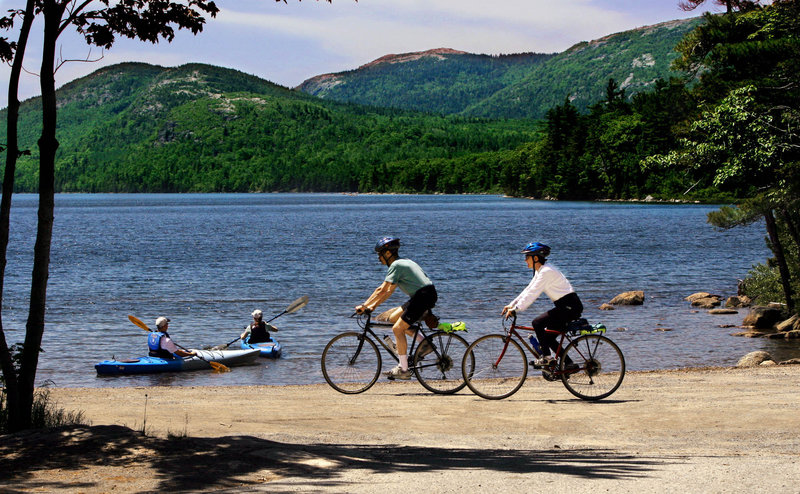BAR HARBOR – Have you seen the television commercial where a family is having dinner and one child sends a text message to the other to “pass the catsup?”
Funny as it is, this may not be far from reality for many teens.
While we adults spend as many as 50 hours a week at our jobs or handling responsibilities at home, according to a recent study by the Kaiser Family Foundation, children today are spending more time than that — seven and a half hours per day, seven days a week — using electronic media.
That’s virtually every waking moment outside of school.
Texting, instant messaging, cell phones and the Internet have become the means for kids’ social interactions. Should we be concerned? I certainly am!
Not only do these electronic devices discourage personal interaction and development of social skills, but they consume the unscheduled time that kids could be exploring the out-of-doors, engaging in physical activities, and developing healthy life skills.
Today’s youth grow up indoors. According to experts, outdoor play has decreased 75 percent from 1990 and fewer than 25 percent of children have regular physical activity of any kind.
Whether it’s inside with their game boys or videos, at the mall, watching television, or simply socializing via media, kids have abandoned outdoor activities such as camping, fishing, hunting, boating and exploring.
User statistics for all of these activities are on the decline, with the most pronounced decreases among youth.
Today, parents are reluctant to let their children play outdoors unsupervised.
Richard Louv, in his book “Last Child in the Woods,” says our children suffer from “nature-deficit disorder” and that “lacking direct experience with nature, children begin to associate it with fear and apocalypse, not joy and wonder.”
Fears of strangers, uncertain danger and disease are reinforced by media headlines, and sometimes inadvertently by their parents, every day.
Public service announcements warn us of the hazards of sun exposure (skin cancer), insect-borne diseases, and other outdoor hazards.
Meanwhile, one-third of children under the age of 18 are now considered “dangerously overweight or obese,” according to the U.S. Centers for Disease Control and Prevention.
Some doctors believe that this generation will be the first to live shorter lives than their parents from obesity-related diseases and reduced quality of life.
First lady Michelle Obama shares this concern and has taken the lead with her “Let’s Move” initiative as her highest priority.
Our kids may also be losing out in other ways. A growing body of research indicates that children who spend time in nature are better thinkers, more creative, can better deal with complex issues and have improved aptitudes for science and math.
Louv says that outdoor play boosts healthy development — intellectually, socially, emotionally and physically. Furthermore, outdoor play reduces stress and promotes weight loss.
The American Academy of Pediatrics recently proclaimed that outdoor and unstructured play time is essential for children.
We in the national parks are working hard to develop a wider range of interesting and fun programs to encourage youth and their families to get outside.
Acadia held a “First Time Hiker” event last summer. The park has the Schoodic Education Adventure, annual Family Fun Day, Junior Ranger, and Ridge Runner programs, in addition to our many interpretive activities, specifically aimed at youth of all ages.
We want today’s youth to grow up healthy and to become both users and supporters of parks and conservation as well as stewards of our shared environment. So we must continue to entice children to enjoy the outdoors and nature and develop healthy life-long interests.
We want to inspire them with America’s extraordinary beauty, to share its stories, and to help them understand and appreciate their natural and cultural heritage.
In short, we want them to experience that “joy and wonder” that nature brings.
– Special to the Telegram
Send questions/comments to the editors.



Success. Please wait for the page to reload. If the page does not reload within 5 seconds, please refresh the page.
Enter your email and password to access comments.
Hi, to comment on stories you must . This profile is in addition to your subscription and website login.
Already have a commenting profile? .
Invalid username/password.
Please check your email to confirm and complete your registration.
Only subscribers are eligible to post comments. Please subscribe or login first for digital access. Here’s why.
Use the form below to reset your password. When you've submitted your account email, we will send an email with a reset code.